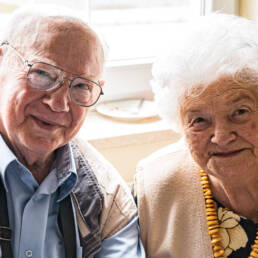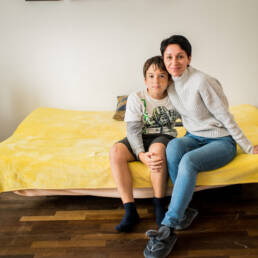Author
Ulrich Förster
EU Funding Officer
Caritas Cologne
We have taken educational work with disadvantaged families to the European level. Our aim in this was to involve as many colleagues as possible in transnational exchanges in order to give them the opportunity to establish European contacts, gain international experience and familiarise themselves with examples of good practice.
Kinga Hubbes, regional coordinator for social integration at Caritas Alba Iulia in Romania
The project work was centred around professional exchange. A total of 112 mobility actions were carried out under the strategic partnership, with seven organisations from six EU Member States (DE, AT, RO, IT, UK, LT) taking part. Participants in the exchange activities were educational professionals who offer education and counselling services to disadvantaged families in their various localities and have extensive experience in this field.
The central topic of our six 2.5-day, transnational partner meetings held every four months at partner organisations was the topic of education and counselling for poor and socially marginalised families. Experts from science and practitioners were invited to this event, and interesting projects were visited on site. Our aim was to do all we could to create a common European knowledge base through project work.
Supplemental to the transnational exchange, each partner also locally organised what are known as ‘family fora’ for disadvantaged parents and single parents. Here, attendees had an opportunity to discuss, provide and receive advice and information on assistance offers around child-rearing, school attendance, vocational training, health promotion, housing, indebtedness and other issues. Initiated as a complement to case-by-case advice, the family fora produced very positive results and helped combat social exclusion. The fora succeeded in reaching more than 600 disadvantaged participants. Above and beyond these, another 180 people (education experts, responsible politicians and public officials, stakeholders, etc.) came into contact with our project.
We visited Brussels at the conclusion of the project partnership. Here we had the opportunity to brief Lisette Schermer, Senior Policy Officer for Erasmus+ at the European Commission, on the progress and results of our strategic partnership, and to discuss with her the further development of the programme from 2021 through 2028, particularly with regard to inclusion.
The transnational partners agreed to continue to apply the family-fora method beyond the end of the project in their advisory and educational work with marginalised families. It was also agreed that the collaboration would continue at the European level, with joint launch of a new project in 2020. Our British partner will also be involved in this, irrespective of the outcome of the Brexit negotiations.
Interested parties can find more information on the project website: www.inclusive-family-education.eu.
The content of the transnational partner meetings is documented in detail in eBook form there as well.












